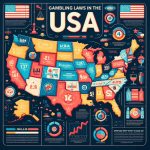Different Types of Betting Options Available
Betting enthusiasts have a myriad of options to choose from when it comes to placing their bets. From traditional sports events like football and basketball to more unconventional events such as reality TV show outcomes or political elections, the range of possibilities is vast. In addition to these options, there are also different types of bets that can be placed, including straight bets, parlays, teasers, and proposition bets.
Within the realm of sports betting, there are various types of bets that cater to different preferences and strategies. For example, a straight bet involves placing a wager on the outcome of a single event, while a parlay bet combines multiple selections into one wager. Teasers allow bettors to adjust the point spread in their favor, and proposition bets offer a variety of options beyond the final result of the game. The diverse range of betting options available ensures that there is something for every type of bettor to enjoy and engage with.
The Legality of Betting on Unconventional Events
Betting on unconventional events has sparked debates regarding its legality in various jurisdictions. While traditional sports betting is widely regulated and accepted, unconventional events such as reality TV show outcomes or weather forecasts may fall into a legal gray area. In some places, laws specifically prohibit betting on non-sporting events, while in others, the legality remains ambiguous.
In countries where betting on unconventional events is permitted, strict regulations often govern the types of events that can be wagered on. Issues such as potential manipulation, fairness, and the impact on participants or outcomes are carefully considered to ensure the integrity of the betting industry. Despite the controversy surrounding unconventional event betting, the growth of online platforms has made it increasingly accessible, prompting authorities to reevaluate existing regulations and adapt to the evolving landscape.
Historical Examples of Unusual Bets
In the 19th century, a peculiar wager took place between two Englishmen who bet on whether a man could walk four thousand miles within one thousand hours. The stakes were high, and the outcome of this unusual bet was a subject of much intrigue among the society at that time. This event highlighted the human fascination with challenging the limits of physical endurance for the sake of a wager.
Another historical example of an unusual bet dates back to the 20th century when two famous American businessmen bet on the sex of a baby born to a mutual acquaintance. This seemingly trivial bet captured public attention and sparked debates on the boundaries of propriety in the realm of betting. The outcome of the wager not only revealed the unpredictable nature of life but also shed light on the role of chance in shaping our destinies.
The Role of Odds and Probability in Betting
When it comes to betting, understanding the role of odds and probability is crucial. Odds represent the likelihood of a particular outcome occurring, while probability expresses the chance of an event taking place. These two concepts go hand in hand in the world of betting, as they guide both the bookmakers in setting the odds and the bettors in making informed decisions.
Bettors who grasp the relevance of odds and probability can make more calculated wagers. By analyzing the odds offered by bookmakers and comparing them with their own probability assessments, bettors can identify potential value bets where the odds are higher than the perceived likelihood of an outcome. This approach requires a combination of skill, research, and understanding of how odds are determined, giving bettors a strategic advantage in the betting arena.
Ethical Considerations When Betting on Unusual Events
When it comes to betting on unusual events, there are several ethical considerations that must be taken into account. One of the primary concerns is the potential exploitation of individuals or groups for the sake of entertainment or financial gain. Betting on events that involve vulnerable populations or sensitive topics can be seen as dehumanizing and can contribute to harmful stereotypes.
Furthermore, there is a risk of normalizing unethical behavior when betting on unusual events. By placing bets on events that are controversial or morally questionable, individuals may inadvertently be endorsing actions that go against societal values or promote harmful practices. It is important for bettors to consider the impact of their actions and ensure that they are not contributing to the perpetuation of negative behavior or attitudes.















